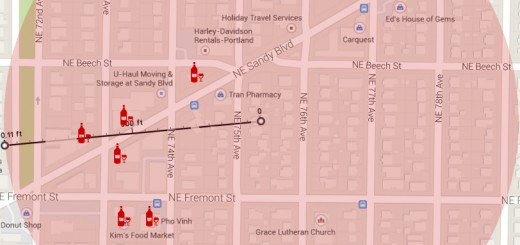For the past few months, we have been closely following the Legislature to see what laws would be implemented for marijuana regulations. Now that the 2015 Legislative Session has concluded, it might be feeling like the time to kick back and enjoy the newly legalized freedom to grow and consume marijuana without fear of arrest. But don’t get too comfortable: the local governments are still working on their own regulatory frameworks and we need to stay vigilant and involved.
Some cities have implemented regulations that would extend beyond reason, including banning the smell of marijuana. So while it is legal to grow and consume marijuana in Pendleton, for instance, they have banned the scent from crossing the property line! Likewise, Grants Pass has banned outdoor cultivation, requiring that all marijuana be grown indoors.
Multiple cities in Eastern Oregon have already acted on the authority granted under HB 3400 to directly ban licensed marijuana activity, including Nyssa, Vale and Malheur County. On the other side of the coin, some localities are dealing with the time, place and manner restrictions. In Coburg, a mother and daughter applied for a license to dispense out of one of twenty historic properties known as Matthews House on East Pearl Street. Opponents to the dispensary are concerned with the location as well as with an earlier criminal charge for marijuana cultivation, which resulted in an acquittal. There are 23 property owners impacted that are allowed to appeal the dispensary approval, but it will cost $1000 and they only have until July 24 to file. Portland is implementing license fees of $1500.
Each city and county has its own unique strategy for dealing with the topic of marijuana regulation. There are many cities and counties addressing these issues simultaneously and difficult to keep up on all of them. It is also important that you be directly involved in your local government in order to have an impact; they need to hear from you as a citizen in that locality. Whether your city or county is looking at banning licensed marijuana activity or looking at restrictions that would impact private cultivation, it is important that you make contact with them. Let them know how you feel about the various issues surrounding marijuana use, cultivation and licensed activity.
It is important that our representatives hear from us, whether at the state level or the local level. The local level, in fact, is where you can often have the greatest impact. They need to know what their constituents want in order to effectively represent us.
So today, you have activist homework:
1. Call your local county commissioners and inquire about any marijuana related issues currently being addressed.
2. Ask for copies of the language and any meeting dates related to any proposed ordinances.
3. While you have them on the phone, speak generally about what you would like to see in your county related to marijuana regulations.
4. After you receive copies of the language, write up testimony regarding your opinion of the proposed ordinance - whether you support or oppose it and why.
5. Repeat the same steps 1-4 for your local city council, if you are within city limits.
6. Finally, help keep the rest of Portland NORML informed about what is happening in each locality: Write up a brief summary of what is happening in your locality or another locality that interests you, including any links to language or meeting dates if possible, and we will publish it in the next newsletter for our membership. Email it to [email protected].
We are all a part of affecting marijuana law reform. We need the help of every one of you to keep moving forward on these issues. Too often, we become complacent with what we pass at the state level and forget that it is our local city and county that are implementing the details. The details matter and we need to be informed to take action.






